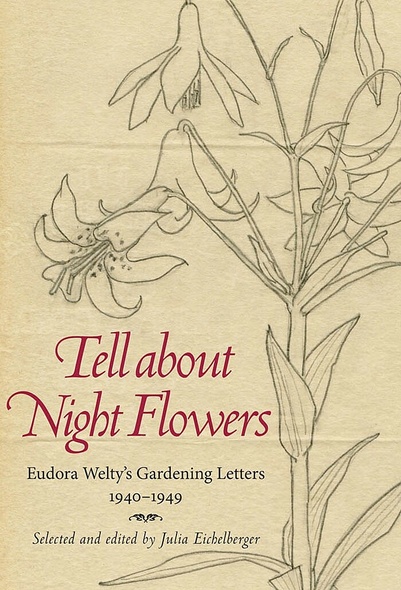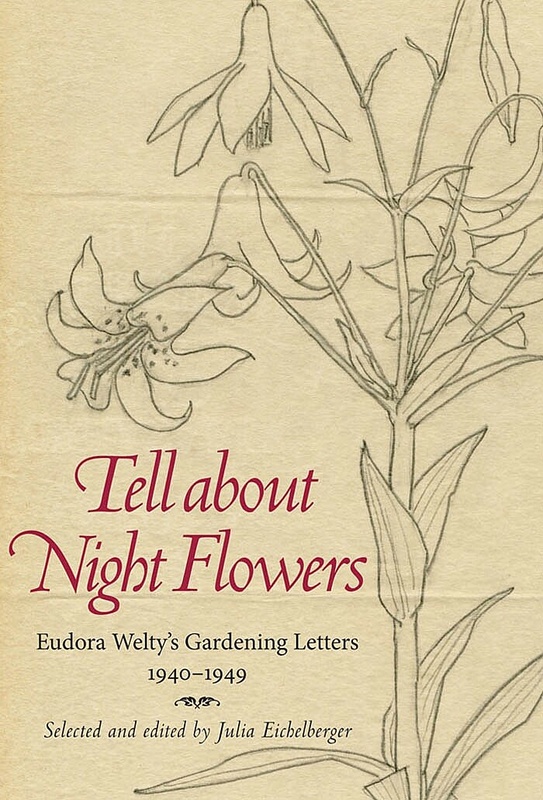
Tell about Night Flowers
Eudora Welty's Gardening Letters, 1940-1949
Tell about Night Flowers presents previously unpublished letters by Eudora Welty, selected and annotated by scholar Julia Eichelberger. Welty published many of her best-known works in the 1940s: A Curtain of Green, The Wide Net, The Robber Bridegroom, Delta Wedding, and The Golden Apples. During this period, she also wrote hundreds of letters to two friends who shared her love of gardening. One friend, Diarmuid Russell, was her literary agent in New York; the other, John Robinson, was a high school classmate and an aspiring writer who served in the Army in WWII, and long the focus of Welty’s affection.
Welty’s lyrical, witty, and poignant discussions of gardening and nature are delightful in themselves; they are also figurative expressions of Welty’s views of her writing and her friendships. Taken together with thirty-five illustrations, they form a poetic narrative of their own, chronicling artistic and psychic developments that were underway before Welty was fully conscious of them. By 1949 her art, like her friendships, had evolved in ways that she would never have predicted in 1940. Tell about Night Flowers not only lets readers glimpse Welty in her garden; it also reveals a brilliant and generous mind responding to the public events, people, art, and natural landscapes Welty encountered at home and on her travels during the 1940s. This book enhances our understanding of the life, landscape, and art of a major American writer.
This delightful collection of Welty letters displays not only a generous wit and capacity for friendship but the writer’s responsive connection to the material world. We see how easily she appropriates the language of the garden for rich scenic detail in her writing—and then often transforms that detail, as she does in her fiction, into striking, memorable metaphor. Eichelberger deepens our knowledge of Welty in a book that is a great pleasure to read!
This is a beautiful book, a compelling and lovingly rendered gathering of letters that allows a peek inside the twin gardens Ms. Welty tended with such love and care: that of her home there in Jackson, and that of her art. I have never read a book like this—part life of the mind and life of the gardener, intimate and meaningful and startlingly inspired.
Tell about Night Flowers is a joy to read. The gardening letters Eudora Welty exchanged with Diarmuid Russell and John Robinson are by turns witty, pensive, wry, mystical, metaphorical, and practical. Julia Eichelberger introduces and annotates these letters with grace and with keen insight into the profound connection that gardening and creativity had for Welty.
Julia Eichelberger is Marybelle Higgins Howe Professor of Southern Literature at the College of Charleston. She is author of Prophets of Recognition: Ideology and the Individual in Novels by Ralph Ellison, Toni Morrison, Saul Bellow, and Eudora Welty and coeditor of Teaching the Works of Eudora Welty: Twenty-First-Century Approaches. She has also written articles in the Eudora Welty Review, Mississippi Quarterly, and other publications. In 2016 she was honored with the Phoenix Award for outstanding contributions to the field of Welty studies.




